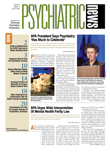Medication treatment for children with attention-deficit/hyperactivity disorder (ADHD) is associated with moderately higher math and reading scores than those earned by their peers with ADHD not taking medications, a five-year naturalistic, observational study has found.
The study authors, led by Richard Scheffler, Ph.D., a professor of health economics and public policy at the University of California at Berkeley School of Public Health and School of Public Policy, analyzed data from a longitudinal survey of more than 21,000 children throughout the United States who were in kindergarten in 1998 and 1999. The findings are reported in the May Pediatrics.
The children were followed through fifth grade and had five assessments that included standardized math and reading tests in the fall and spring of kindergarten and in the spring of first, third, and fifth grades. Nearly 600 children had a diagnosis of ADHD as reported by their parents, and about two-thirds of these children were taking medications at the assessment in the spring of fifth grade. Those not taking medications for ADHD in fifth grade were assumed to be unmedicated throughout the study period.
Compared with unmedicated children with ADHD, those who took medications had math scores that were 2.9 points higher, which was statistically significant and represented an academic gain of 0.19 of a school year (equivalent to approximately two months) over the six-year period from the fall of kindergarten to spring of fifth grade.
The general difference in reading scores between medicated and unmedicated children with ADHD was not statistically significant. However, the subgroup of children who had been medicated for a year or longer had a 5.4-point gain in mean reading score over unmedicated children, which was statistically significant and equivalent to a gain of 0.29 school years (equivalent to slightly over three months).
“The effect size would be considered on the moderate side,” Stephen Hinshaw, Ph.D., chair and a professor of psychology at the University of California at Los Angeles, told Psychiatric News. He is one of the study's co-authors.
The researchers pointed out in the article that despite the academic performance gains in the medicated children with ADHD, they still fell substantially behind their peers without ADHD in both math and reading test scores.
“Medication use was associated with gains compared with kids who did not get medicated, but the gains were only about 40 percent of the amount needed to bridge the gap [between children with and without ADHD],” Hinshaw said. “The clear implication is that combination treatments—medication plus home-based behavioral treatments, teacher consultation, or, when indicated, tutoring or direct academic instruction—are needed for academic remediation for children with ADHD.”
“The results of this study are consistent with general clinical experience,” David Fassler, M.D., a child psychiatrist and clinical professor of psychiatry at the University of Vermont medical school, commented to Psychiatric News. “Without treatment, children with ADHD have difficulties at home, in school, and with their peers. With treatment, they tend to do better across all settings,” he noted.
Despite the study's encouraging findings, he noted, “the results should be interpreted with caution due to the methodology employed. For example, the authors rely on the parents' reports of both diagnosis and medication history [and] did not collect data on treatments other than medication, such as behavioral interventions.”
Fassler concurred with the authors' conclusion that more long-term clinical studies are needed to better understand the effects of medication use on academic achievement in children with ADHD.
Hinshaw said, “If used consistently and monitored well, medication may be linked not only to attention and behavioral improvement but gains in actual reading and math skills.” However, “despite the potential ... enhancement of achievement [associated with medication use], a multimodal or team approach is almost certainly necessary to show important and lasting academic benefits for youths with ADHD,” he emphasized.
The study was funded by the National Institute of Mental Health.
An abstract of “Positive Association Between Attention-Deficit/Hyperactivity Disorder Medication Use and Academic Achievement During Elementary School” is posted at<pediatrics.aappublications.org/cgi/content/abstract/123/5/1273>.▪
